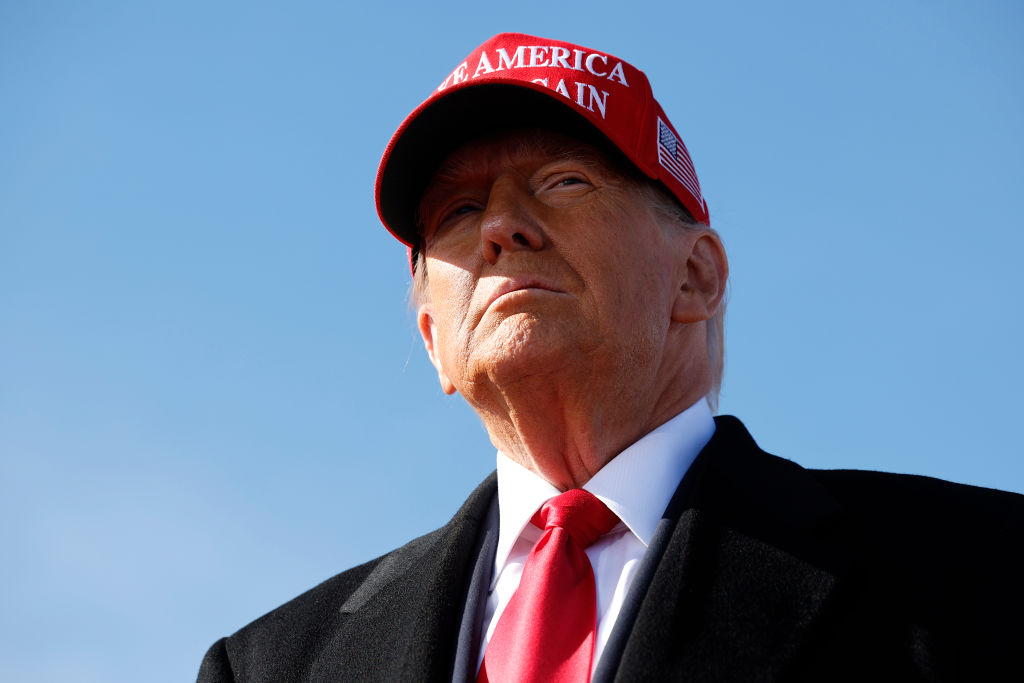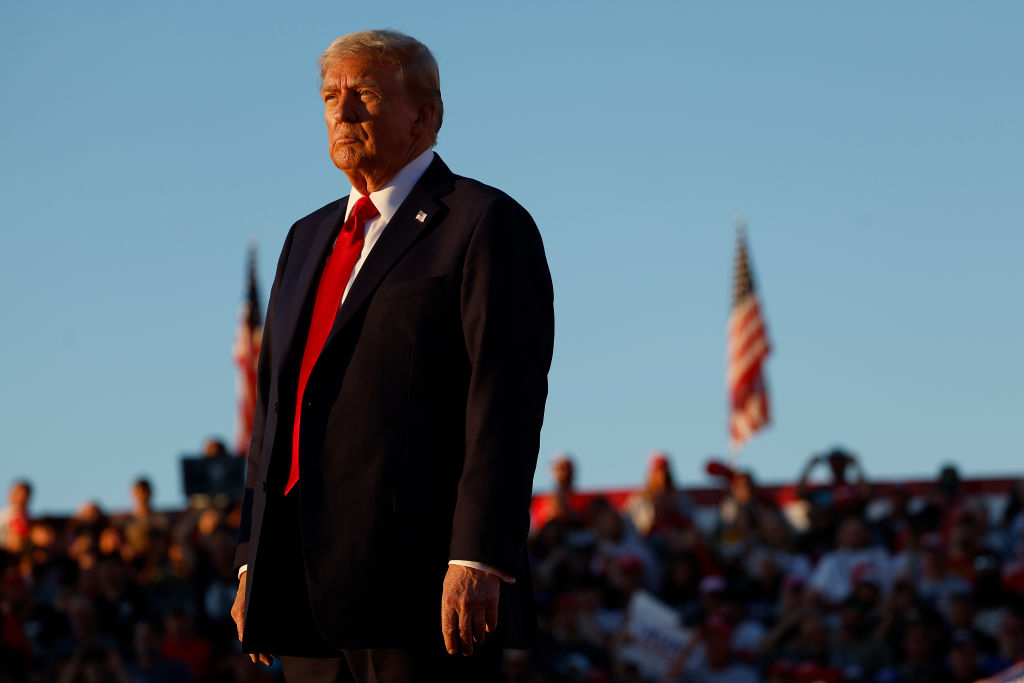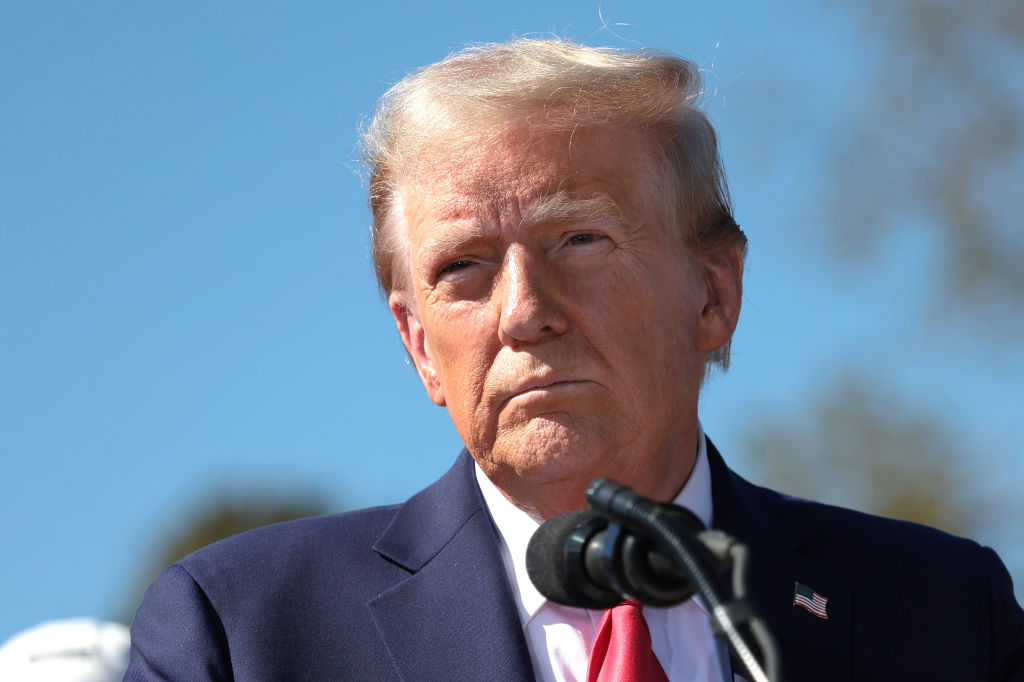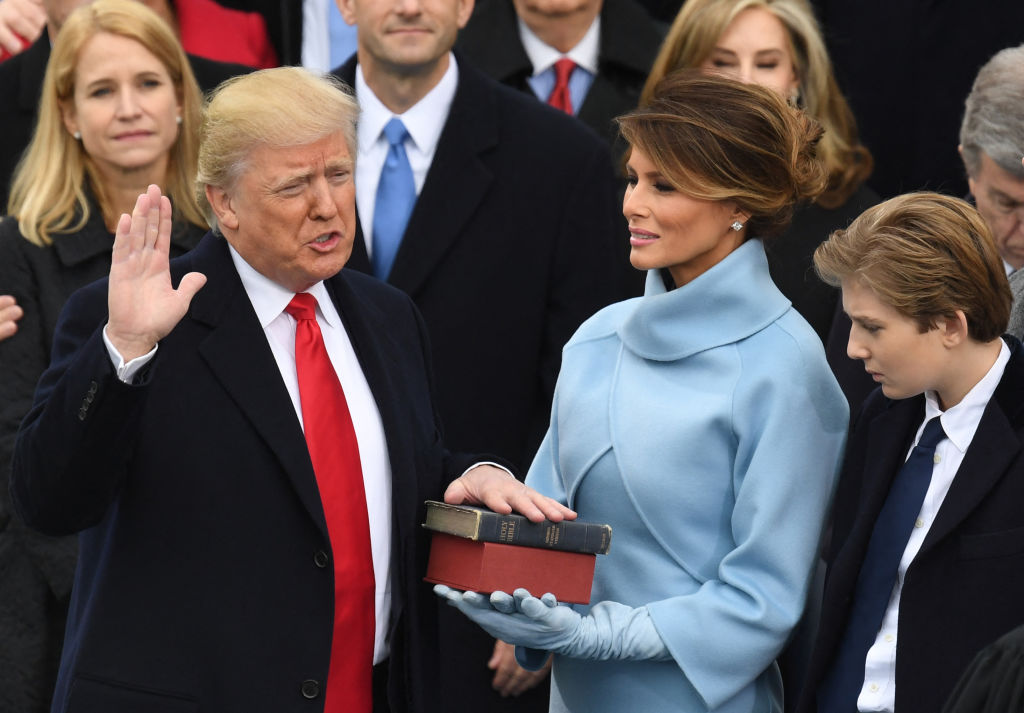He should fortify and restore democracy.
Constitutionalist-in-Chief
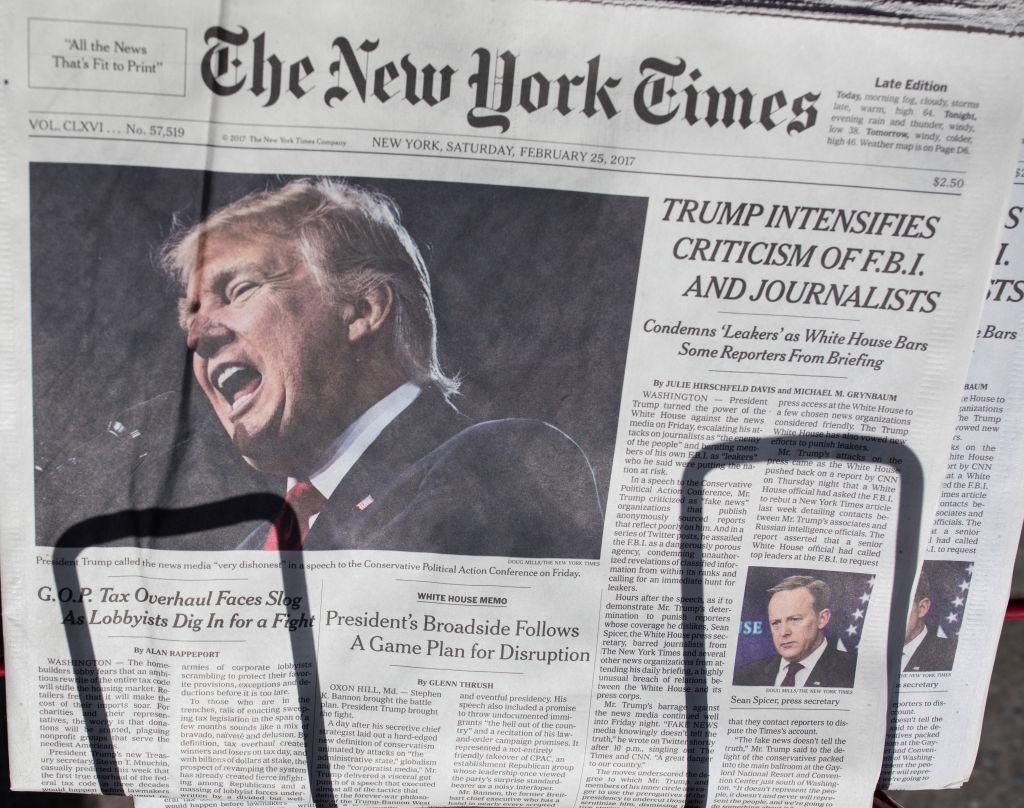
President Trump should seek the reversal of New York Times v. Sullivan.
If he prevails in the coming election, Donald Trump will have a chance to become one of the most consequential presidents in American history.
A large part of Trump’s already impressive legacy is the restoration of constitutional self-government. His signature accomplishment in this realm is, of course, the Supreme Court’s reversal of Roe v. Wade. By this ruling—which would have been impossible but for Trump’s fidelity to his campaign promise to appoint solid constitutionalists to the high Court—an earlier bogus, judge-invented “right” was rejected, the Constitution’s original meaning was restored, and Americans were once again free to deliberate as a self-governing people about how abortion should be regulated.
If Trump is elected to a second term, he should build on this legacy by seeking the reversal of another egregious instance of judicial activism that continues to distort the Constitution and our nation’s politics: New York Times v. Sullivan. In this 1964 ruling, the Warren Court imposed a new doctrine of libel and the First Amendment on the nation.
The traditional standards, which can be traced back to the Founding, held that libel, or the publication of defamatory falsehoods, was simply outside the scope of the First Amendment’s protection of the freedom of the press. Libel, the Founders believed, following the great English legal commentator William Blackstone, did not belong to the “liberty of the press” but instead to “licentiousness.” Accordingly, libel cases raised no constitutional problems at all and were viewed as a proper way for injured individuals to protect their right to reputation.
The Sullivan Court and its successors departed from these traditional standards by holding that libel suits brought by “public officials”—and, later, “public figures” as well—would be adjudicated under a new “actual malice” doctrine. For such libel victims, the Court said, it would henceforth be insufficient to show that the injurious publication had been false and defamatory. They would also have to show that it had been published with “actual malice,” meaning that the publisher knew it was false, or at least acted with reckless disregard for whether it was true or false. This standard has proven so hard to meet that it is now near-impossible for a public official or public figure plaintiff to win a libel judgment—even when the injurious publication is admittedly false and damaging to the victim’s reputation.
Trump, of course, is not new to this issue. He has long argued that America needs to reform its libel laws so that they serve as an effective check on a contemporary press that is too-often prone to dishonest partisanship, seeking to defeat disfavored candidates by trashing their reputations.
The libel doctrine of New York Times v. Sullivan should be rejected for three very important reasons (which I explain at greater length in my Provocations essay here).
First, the original understanding of the First Amendment held that libel, even libel of public persons, was outside the protections of the “freedom of the press.” The Sullivan Court’s “actual malice” doctrine is the product of judicial activism almost as egregious as that which produced the Roe Court’s judge-invented trimester scheme in support of an alleged constitutional right to abortion.
Second, the “actual malice” doctrine undermines one of the core purposes of law and government sketched out in American political theory—namely, the security of rights. The Founders understood that reputation is not just a legal interest but a right, and that attacks on the right to reputation are just as serious, and just as worthy of legal redress, as theft or assault.
Third, the Sullivan doctrine—contrary to the intentions of its authors—undermines republican government. The Sullivan majority devised the actual malice standard to protect the vigorous public debate that is essential to self-government. Genuine self-government, however, depends not just on vigorous public debate, but on a vigorous public debate based on accurate information about the candidates vying for office. One of the keystones of the American regime is government by consent. But genuine consent is defeated, and democracy becomes a farce, when voters are influenced by defamatory falsehoods about candidates for public office.
Ultimately, the responsibility for correcting New York Times v. Sullivan falls to the justices of the Supreme Court. Nevertheless, there is much that a president can do to encourage this outcome. If Trump wins a second term, he should consider taking the following steps with a view to getting the justices to reconsider the actual malice doctrine and restore the original meaning of the First Amendment.
First, President Trump should make the case for revisiting the Sullivan ruling a more prominent and recurring part of his public rhetoric. He could have his communications staff write a speech, or part of a speech, that lays out to the public the reasons for junking the actual malice doctrine. He could host White House events featuring the most sympathetic victims of media defamation and providing a forum for lawyers and scholars who can lay out the legal and constitutional problems with the Court’s arguments in the Sullivan case. Of course, though President Trump will have many other issues to highlight, it is certainly possible to say more on the problem of contemporary libel standards than occasional remarks in interviews.
Second, and obviously, President Trump should continue his first-term policy of appointing serious constitutionalists to the Supreme Court and, indeed, to all federal judicial vacancies. The need here is for appointees who understand that federal judges have a responsibility to enforce the original meaning of the Constitution—even when previous generations of liberal judges have disregarded it. In other words, we need judges and justices who understand that it is the proper fulfillment of the judicial duty to undo earlier precedents that have departed from the Constitution’s true meaning.
Finally, President Trump should direct his Department of Justice to seek the reversal of the actual malice doctrine and restore judicial respect for the original meaning of the First Amendment. This policy should include the regular filing, in appropriate cases, of amicus curiae briefs by the Justice Department urging the courts to revisit this question. In any opportune case involving the actual malice doctrine, Trump’s DOJ should ask to appear as a friend of the court, advancing the argument that the doctrine is not required by the Constitution and should accordingly be abandoned by the federal courts. This policy will obviously require the appointment of an attorney general and a solicitor general who understand the problem with the Sullivan doctrine and support the president’s policy.
Besides generating further helpful public discussion, this last step promises to have the salutary effect of forcing the justices of the Supreme Court to confront the arguments against the Sullivan doctrine. It is fair to say that six current members of the Court are originalists of one kind or another. Only two of them so far, however, have expressed any doubts about the constitutional legitimacy of the actual malice standard: Justices Thomas and Gorsuch. It is likely that the others—Chief Justice Roberts, and Justices Alito, Kavanaugh, and Barrett—can see the problems with the Sullivan opinion, yet hesitate to revisit such a long-established precedent. The policy recommended here will require these justices to attend to the anti-Sullivan arguments in their most sophisticated form, and coming from a source the justices will certainly respect—since Trump’s Office of the Solicitor General will no doubt be staffed by some of the most capable conservative constitutional lawyers the country can offer.
Would President Trump succeed in getting the Court to rethink the actual malice doctrine? There is no guarantee; and victory, if it comes, would almost certainly come after Trump leaves office (as was the case with Court’s reversal of Roe v. Wade). Nevertheless, success would further cement Trump’s legacy as a force for restoring constitutionalism and self-government.
The American Mind presents a range of perspectives. Views are writers’ own and do not necessarily represent those of The Claremont Institute.
The American Mind is a publication of the Claremont Institute, a non-profit 501(c)(3) organization, dedicated to restoring the principles of the American Founding to their rightful, preeminent authority in our national life. Interested in supporting our work? Gifts to the Claremont Institute are tax-deductible.
Trump must break with the status quo—and his own inclinations.
There’s one fundamental task Trump can still do for us.
His agenda must revolve around recovering the practices of self-government.
He must not let the swamp stymie his agenda.
He needs to learn from Reagan and hit the ground running.

